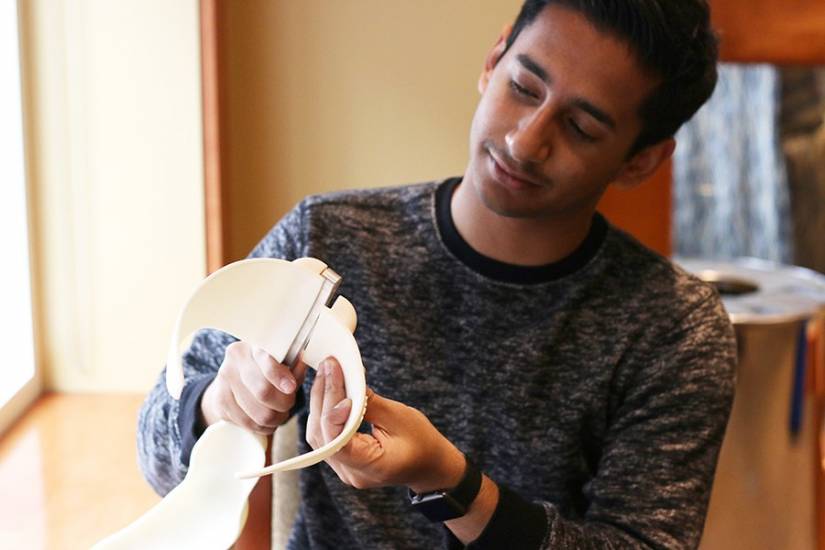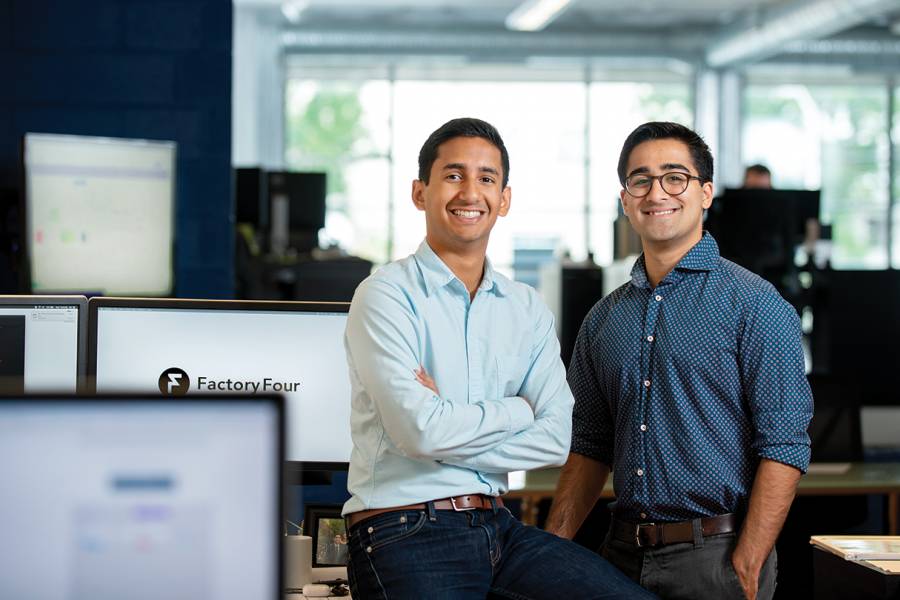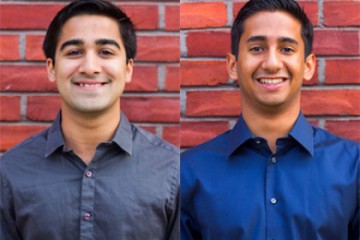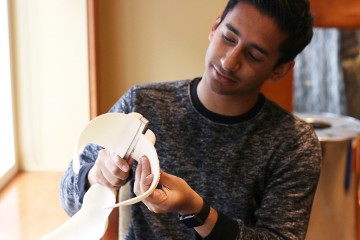Alex Mathews hadn't planned on becoming an entrepreneur—especially not while still in college. But in his junior year, Mathews met Param Shah through the Hodson Trust Scholarship Program. Shah told him about the production challenges he faced with his nonprofit, the Lotus Life Foundation, which delivers medical devices to children in remote areas of India. Mathews created a software platform that enabled Lotus Life to accurately produce orthotics and prosthetics customized for individual patients, and in 2016, Mathews and Shah founded their first business, Fusiform. They soon discovered, however, that their software could also serve the custom design-and-build needs of a range of industries, which up until now have lacked viable software for managing product specifications and performance data. In 2017, they launched the manufacturing software company FactoryFour (maintaining Fusiform as a subsidiary) with support from the Baltimore venture capital fund community, quickly growing to 16 employees with a current plan to double in size within the next year.
How did your personal and educational background prepare you for launching FactoryFour?
I did a lot of computer science work in high school, so I had a head start. My freshman year, I met Jamasen Rodriguez, A&S '15, a fellow Hodson Scholar who was a year ahead of me. Along with some other friends, we launched Jama Cocoa, which specialized in single-origin chocolate truffles. I was the chief technology officer, developing our e-commerce platform. We didn't make a lot of money but were successful enough to be bought out by an initial investor. That really changed my preconceived notions of entrepreneurship.

Image caption: Mathews demonstrates how one of Fusiform's custom orthotics works
Image credit: Will Kirk / Johns Hopkins University
And what were those?
Initially I thought it might be like the guy selling snake oil—a lot of hand waving and trickery. But I learned that you can do great things with a few really smart people, and how impactful you can be with just a lot of hard work and dedication.
So did you want to be an entrepreneur after that?
No, I still just wanted to be an engineer and solve problems. But it's interesting how the two go together. By my junior year, I had transferred from computer science to biomedical engineering, and I got into computer-integrated surgery, using 3-D scanning to rapidly design and produce cranial implants. And then a friend introduced me to Param in passing, and he told me about his production challenges with the Lotus project. Based on what I had learned from computer science and biomedical engineering, I knew that the custom manufacturing industry was antiquated, even in developed countries. They weren't taking advantage of what modern software could offer. So in a sense, meeting Param was my first real lightbulb moment. The next morning I messaged him and said, "Hey, we should keep working on this."
That wasn't your only lightbulb moment, was it?
No. When we launched Fusiform, we didn't understand the scale of the custom manufacturing problem. One of our early advisers was like, "Oh, you guys are doing something very similar to what this eyewear company would need." And we were like, "OK, yeah, let's go talk to them." They were willing to pay a lot for what we were able to do, which was shocking to us. Then another adviser connected us with the dental industry. Then we got into the packaging industry, and so on. So many companies manage made-to-order production with spreadsheets and pen and paper. They have no software that can manage and communicate product specifications or track data to improve manufacturing moving forward.
You launched Fusiform and FactoryFour during your junior and senior years at Hopkins. How did you balance school and business?
[Laughs] Not very well! I was pre-med at the time, but around the fall semester of my senior year, I thought, "Oh my God, I'm killing myself with these academic courses." The company was starting to do well, so I decided not to apply for medical school. I reduced my course load to maintain a good GPA while balancing work with the company, and I stayed in school part time to graduate a year later. One of our employees jokes that she would ask to have meetings, and I'd be like, "Oh, shoot, I can't make that! I have to go take a final exam."
Amid this early success, what keeps you up at night? What worries you the most?
We now have 16 employees, and we're about to go through our next hiring phase. Param and I take our responsibility as co-founders very seriously, probably to an unhealthy degree. We are very conscious of the fact that our decisions impact our shareholders, our clients, and most importantly our team.
What is the secret to your success?
That's easy. Relationships. Param and I are like the same person who works on two different projects—he on the business side and me on the engineering. It's surprising that we're able to be so in sync all the time. We rarely have disagreements. We also benefit from an incredible team. And in fact, most of them went to Johns Hopkins—they're the same people I studied with or took courses with. Sometimes, it's like we're back in Brody Learning Commons, solving problems together.
Posted in Science+Technology, Alumni
Tagged alumni, biomedical engineering










